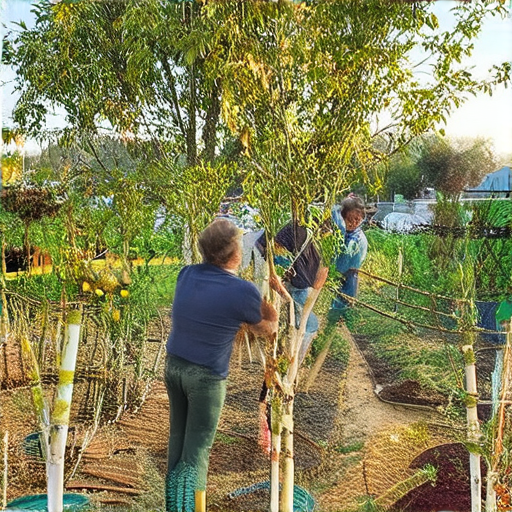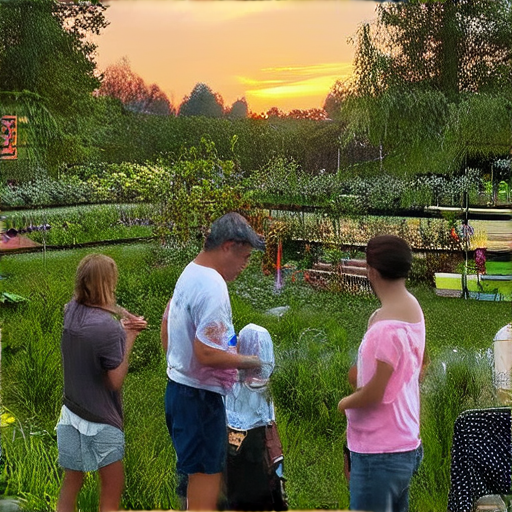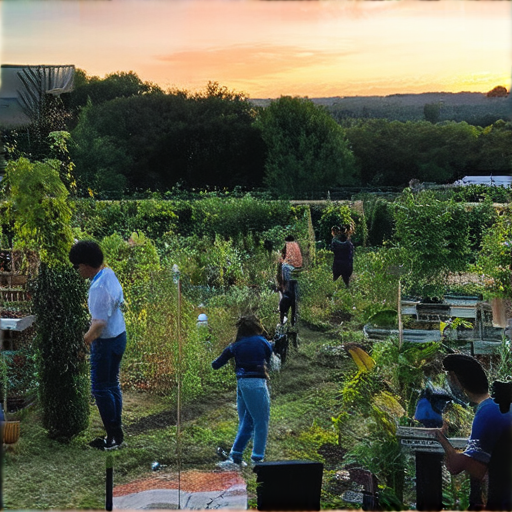As we navigate the complexities of modern society, it has become increasingly clear that traditional forms of volunteering often fall short in addressing the unique needs of communities around the world. This is where skills-based volunteering comes into play – a revolutionary approach that empowers individuals to leverage their professional expertise and skills to drive meaningful change. By tapping into the vast pool of skilled professionals willing to lend their time and talents, organizations can unlock new levels of efficiency, effectiveness, and impact. In this article, we’ll delve into the world of skills-based volunteering, exploring its core principles, benefits, and real-world applications.

Skills for Volunteering
I’m passionate about exploring global adventures with a purpose, and I believe that volunteering is an incredible way to make a positive impact while developing valuable skills.
-
Communication Skills
Effective communication is essential for successful volunteering, whether it’s working with colleagues, interacting with clients, or collaborating with local communities.
-
Teamwork and Collaboration
Volunteering often requires working alongside others towards a common goal, making teamwork and collaboration crucial skills to develop.
-
Cultural Competence
When volunteering abroad, it’s vital to understand and respect local customs, traditions, and ways of life, which can be achieved through cultural competence.
-
Problem-Solving and Adaptability
Volunteering can be unpredictable, and being able to think critically and adapt to new situations is essential for success.
-
Leadership and Initiative
Taking initiative and demonstrating leadership skills can help you make a greater impact and take on more responsibilities during your volunteering experience.
-
Time Management and Organization
Effective time management and organization are critical for balancing volunteering commitments with daily life and achieving goals.
-
Flexibility and Patience
Volunteering can be challenging, and being flexible and patient is essential for overcoming obstacles and making the most of your experience.
-
Emotional Intelligence and Empathy
Developing emotional intelligence and empathy is crucial for building strong relationships with colleagues, clients, and local communities.
-
Language Skills
Learning a new language can greatly enhance your volunteering experience, particularly when working in foreign countries.
-
Technical Skills
Depending on the type of volunteering, technical skills such as graphic design, web development, or social media management may be required.
By developing these skills, you’ll not only become a more effective volunteer but also increase your chances of making a lasting impact and achieving your personal and professional goals.
Two Main Types of Volunteering
The two primary categories of volunteering are based on the type of work involved and the duration of the commitment.
-
Vocational Volunteering
This type of volunteering involves using one’s professional skills to benefit a cause or organization.
- Examples include medical professionals volunteering at hospitals, teachers teaching at underprivileged schools, and engineers working on sustainable projects.
- Vocational volunteering allows individuals to apply their expertise to make a meaningful impact.
-
Non-Vocational Volunteering
This type of volunteering does not require specialized skills and can involve tasks such as event planning, fundraising, and administrative support.
- Examples include helping at animal shelters, participating in beach cleanups, and serving meals at soup kitchens.
- Non-vocational volunteering provides opportunities for individuals to engage in community service and develop new skills.
Both vocational and non-vocational volunteering offer unique benefits and opportunities for individuals to make a positive difference in their communities.

What is Project-Based Volunteering?
Project-based volunteering involves working on specific projects that require a group of volunteers to collaborate and contribute their skills, expertise, and time to achieve a particular goal or outcome.
- Short-term commitments: Project-based volunteering often requires a shorter commitment period compared to traditional volunteering, which can last from a few days to several weeks or months.
- Focus on skills: Rather than focusing on formalized volunteering roles, project-based volunteering emphasizes the utilization of volunteers’ specific skills and expertise to drive project success.
- Collaborative approach: Volunteers work together as a team to accomplish project objectives, fostering a sense of camaraderie and shared responsibility.
- Measurable outcomes: Project-based volunteering aims to deliver tangible results and measurable outcomes, making it easier to track progress and evaluate impact.
Benefits of Project-Based Volunteering
- Increased efficiency: By leveraging volunteers’ unique skills and expertise, project-based volunteering can lead to more efficient project execution and better outcomes.
- Improved engagement: Volunteers feel more invested in the project when they’re able to contribute their strengths and see the direct impact of their efforts.
- Enhanced collaboration: Project-based volunteering encourages teamwork, communication, and problem-solving among volunteers, leading to stronger relationships and a sense of community.
- Greater flexibility: With project-based volunteering, organizations can adapt to changing needs and priorities more easily, allowing for greater flexibility and responsiveness.
Examples of Project-Based Volunteering
- Community clean-up initiatives: Organizing a group of volunteers to clean up a local park or beach, utilizing their collective energy and skills to restore the environment.
- Disaster relief efforts: Assembling a team of volunteers with diverse skill sets to respond to natural disasters, providing critical support and assistance to affected communities.
- Skill-sharing workshops: Hosting workshops where volunteers can share their expertise and learn from others, promoting knowledge exchange and capacity building.
Inxchan encourages travelers and volunteers to explore project-based volunteering opportunities that align with their passions and skills, contributing to meaningful projects and experiences that foster personal growth and global awareness.

Five Types of Volunteerism
I’m passionate about exploring various forms of volunteerism that can positively impact our communities.
-
Informal Volunteering
This type involves spontaneous acts of kindness, often driven by personal relationships or social connections. Informal volunteering can take many forms, such as helping a neighbor with yard work or donating gently used items to those in need.
-
Vocational Volunteering
Vocational volunteering combines professional skills with volunteer work, allowing individuals to utilize their expertise to benefit others. Examples include medical professionals offering free clinics or IT specialists building websites for non-profit organizations.
-
Organizational Volunteering
Organizational volunteering typically occurs through established groups or charities, such as Red Cross chapters or animal shelters. These organizations often rely on volunteers to carry out critical tasks and programs.
-
Virtual Volunteering
With the rise of remote work, virtual volunteering has become increasingly popular. This type involves contributing to causes remotely, often through online platforms or digital tools. Virtual volunteering can include tasks like data entry, social media management, or virtual mentorship.
-
Cause-Based Volunteering
Cause-based volunteering focuses on addressing specific social issues, such as environmental conservation, education, or healthcare. Volunteers may participate in events, campaigns, or long-term projects aimed at driving positive change.
The Three Ts of Volunteering
I’ve learned that volunteering can be incredibly rewarding, and I’d like to share with you the three essential components that make it truly effective.
- Time: Donating your time is perhaps the most obvious aspect of volunteering. Whether it’s helping out at a local soup kitchen, participating in a beach cleanup, or assisting at an animal shelter, giving your time allows you to make a tangible impact in your community.
- Talent: Everyone has something unique to offer, whether it’s a particular skill set, language proficiency, or simply a willingness to learn. By leveraging your talents, you can contribute to projects that align with your passions and interests, making the experience even more fulfilling.
- Treasure: While monetary donations may seem insignificant, every contribution counts, regardless of size. Even small amounts can go a long way in supporting causes close to your heart, and many organizations rely heavily on these types of donations to continue their vital work.
By incorporating these three Ts into your volunteering efforts, you’ll not only be making a positive difference in the world but also enriching your own life through personal growth, new experiences, and meaningful connections.
As someone who’s passionate about travel and volunteering, I’m excited to share my knowledge with others and inspire them to join me on this journey of discovery and giving back.
For more information on how to get involved in volunteering opportunities around the world, check out our Volunteer Abroad page or visit our Community section to connect with like-minded individuals.

The Golden Rule of Volunteering
As a traveler and volunteer enthusiast, I’ve learned that there’s one fundamental principle that sets exceptional volunteers apart from the rest – the golden rule of volunteering.
- Commitment is Key
- Professionalism Matters
- Be Reliable and Accountable
- Communicate Effectively
- Respect and Empathy
When you commit to volunteering, it’s essential to follow through on your promise. Your ability to fulfill a commitment doesn’t just reflect on you, but also on the organization you’re volunteering for.
Great volunteers remain professional in all situations, whether it’s working with clients, collaborating with team members, or representing the organization in public.
A reliable and accountable volunteer is someone who shows up on time, meets deadlines, and takes ownership of their tasks. This not only builds trust with the organization but also contributes to a positive reputation.
Clear communication is vital in any volunteer role. Make sure to ask questions, clarify expectations, and provide regular updates to ensure a smooth workflow and successful outcomes.
Treat others with respect and empathy, regardless of their background, culture, or profession. This creates a safe and inclusive environment for everyone involved.
By embracing these traits, you’ll become a valuable asset to any organization and set yourself up for success in your volunteer journey. Remember, volunteering is not just about giving back – it’s also about personal growth, skill development, and building meaningful connections with like-minded individuals.
At Inxchan, we believe that volunteering has the power to transform lives and communities. That’s why we’re dedicated to sharing inspiring stories, practical tips, and expert advice to empower you to make a lasting impact.
Whether you’re a seasoned volunteer or just starting out, remember that every small act counts. By committing to the golden rule of volunteering, you’ll not only make a difference in the world but also discover the rewards of giving back.

0 Comments